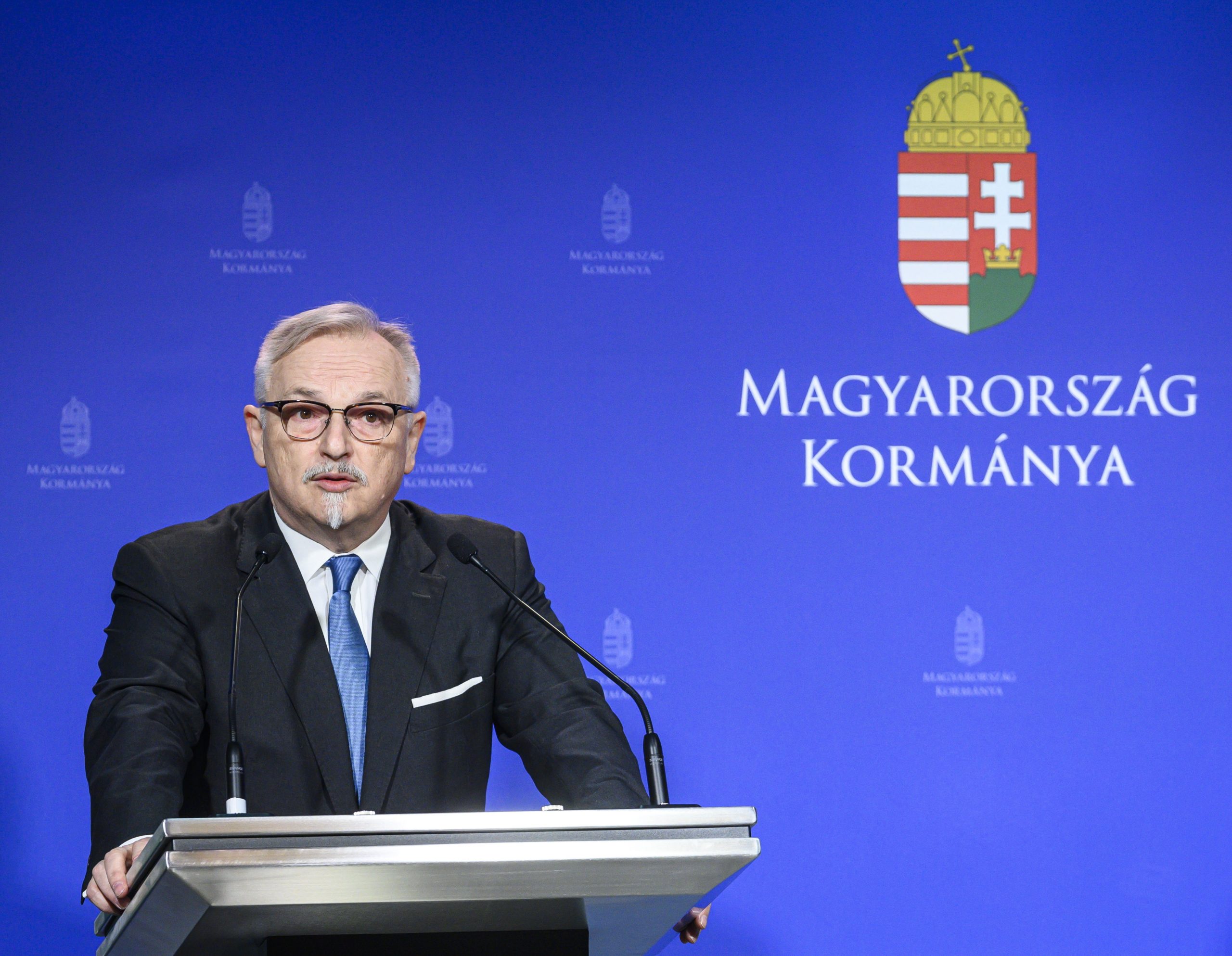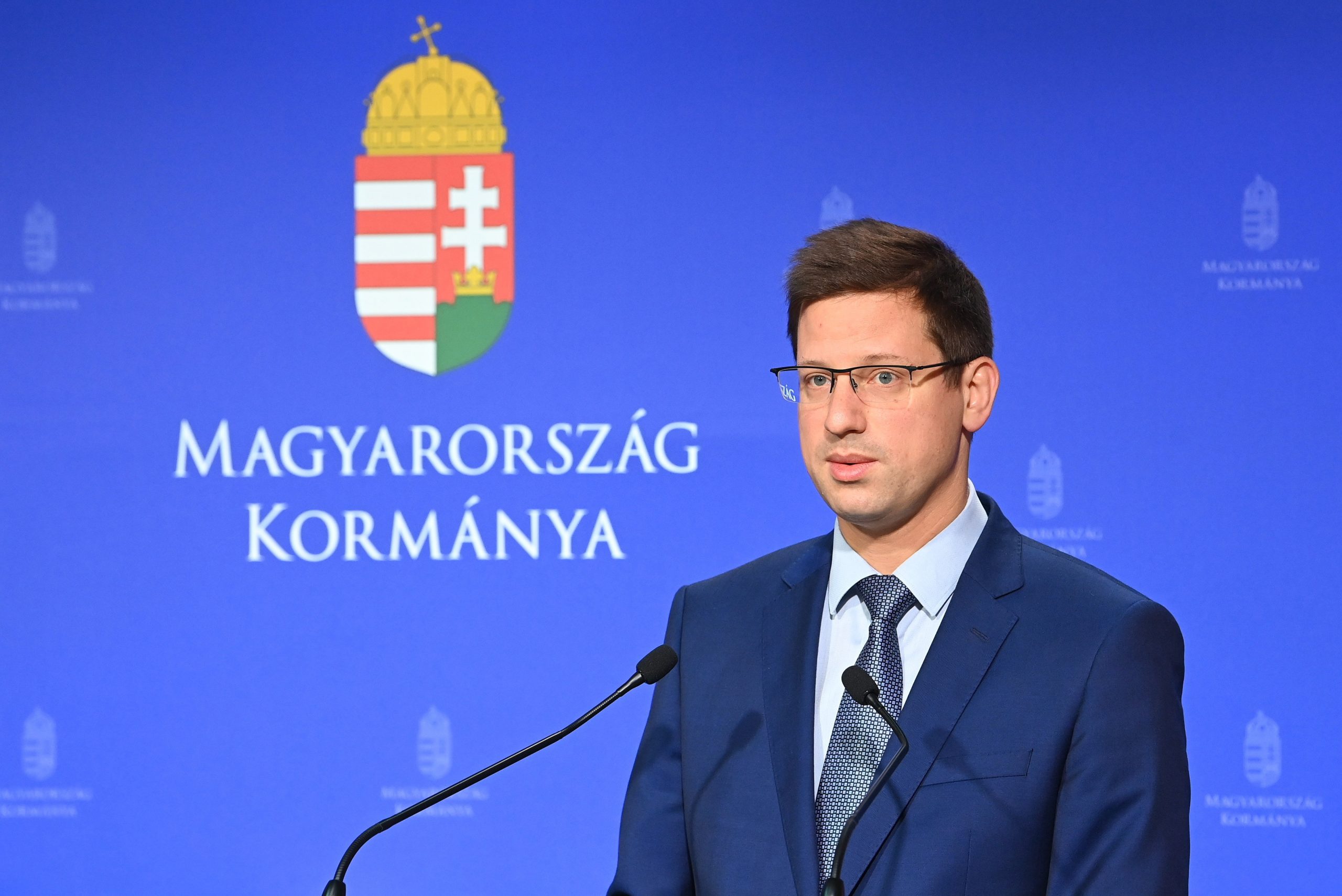
"As an economist, but also as a manager responsible for the security of supply, I have to say that such price intervention can only be sustained in the very short term," Zsolt Hernádi said about the price cap.Continue reading

In view of the war in Ukraine, the government will extend price caps on food and petrol until October 1st, and the loan moratorium and cap on mortgage rates until the end of this year, the prime minister’s chief of staff said on Friday.
Gergely Gulyás announced at a regular press briefing that later in the year a decision will be made on whether circumstances justify any further extension.
As the war in Ukraine is driving inflation worldwide, energy prices are soaring and commodity prices are also up, partly due to the sanctions on Russia, and Hungary also has to face rising inflation, he said.
“Inflation will subside once peace sets in, and so the most effective tool is not arms transports and the support of the war but brokering peace,” he said.
Under the current circumstances, it is important to rein in inflation in Hungary to counter the effects of global economic trends, and the Hungarian government is making every effort to achieve this by protecting utility price reductions and price caps, he said.
The government has managed to keep a 5-6 percent lid on inflation with these measures, he added.
The government has imposed a 480 forint (EUR 1.2) per liter price cap on fuel for Hungarian motorists, he noted.
Referring to a “letter from Brussels” calling on the government to scrap the latter, Gulyás said that Hungary’s government has remained committed to protecting the people and the economy from soaring fuel prices.
A similar Italian measure has prompted lawsuits, which the country eventually won, he noted.
Regarding the sanctions on Russia, Gulyás said the government would continue to back only those sanctions which don’t hurt Hungary and Europe more than they hurt Russia, adding that an embargo on Russian gas imports would threaten the entire continent’s gas supply.
The decisions made by Brussels so far have contributed to the record-high inflation rate, he said, adding that the imposition of a gas embargo would put the energy supply of the whole of Europe at risk.
He called on the European community to return to the sanctions as described in the “consensus reached in Versailles,” which exempted energy resources from the sanctions imposed on Russia as a response to the war in Ukraine.
While “we somehow got over the issue of coal and oil,” further sanctions on gas deliveries would have “extremely negative effects,” he said.
Meanwhile, Gulyás also said the Hungarian government did not support the introduction of a global minimum tax, a position which the finance minister would hold firm on at Friday’s Ecofin meeting. This matter requires a unanimous decision, which cannot be reached without Hungary, he added.
Gulyás said that a global minimum tax would force Hungary to double tax burdens on businesses, arguing that they currently pay a rate of 7.5 percent and the global minimum tax rate would be 15 percent. The global minimum tax would cost Hungary its tax advantage in the region and Europe, and place burdens on businesses that would be too heavy even in a normal economic situation, let alone in a time of war, he added.
The Minister said that a consumer protection investigation has been launched against Ryanair. A decision to pass the extra profit tax onto consumers must always be investigated and action taken.
Referring to Ryanair’s previous statements in which the airline called the special tax “beyond stupid,” Gulyás said it was unusual for a company to allow itself such blunt words and suggested Hungarian travelers to choose a competitor airline, if available, and travel with them instead. He also advised everyone affected to contact consumer protection even if they decide to pay the extra cost.
In response to a question, Gulyás said that it was a good idea to have the European Parliament and municipal elections on the same day. “It is better for everyone if the two elections are held at the same time,” he added. Gulyás does not understand the opposition’s argument, saying that in this case, it is cheaper to run only one campaign rather than two. It is a practical solution and it also saves the Hungarian state money.
via: MTI, Mandiner
Featured photo by Zoltán Máthé/MTI